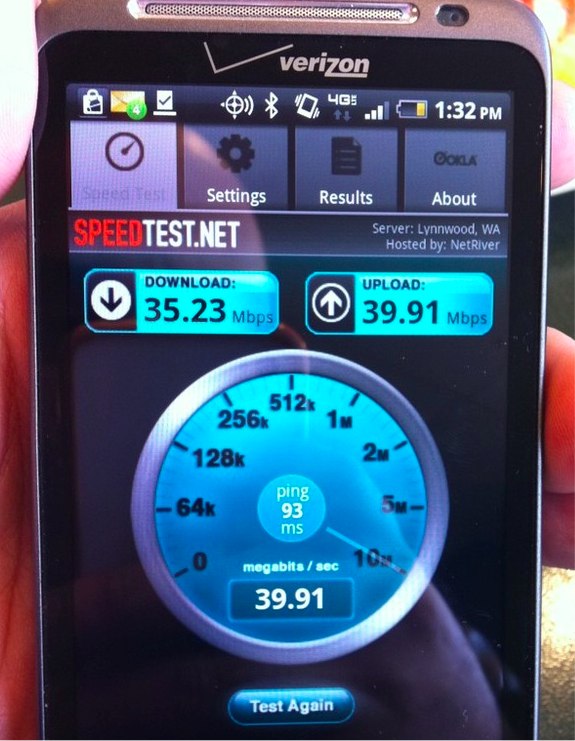Find Our Latest Video Reviews on YouTube!
If you want to stay on top of all of our video reviews of the latest tech, be sure to check out and subscribe to the Gear Live YouTube channel, hosted by Andru Edwards! It’s free!
Friday July 15, 2011 12:32 pm
Verizon LTE smartphones won’t roam on AT&T LTE, and vice versa

Thinking of unlocking a Verizon Wireless LTE phone for use on AT&T's network, or vice versa? Think again. Verizon Wireless confirmed today that its LTE phones will not "be compatible on other LTE networks in the U.S." because "the phones will be on different frequencies," according to Verizon spokeswoman Brenda Raney.
The new 4G LTE system used by Verizon, MetroPCS, and soon AT&T runs on SIM cards much like the ones for GSM networks, and GSM phone owners are used to being able to switch phones from network to network, as long as they're unlocked.
But Verizon may be designing its phones to only run on Verizon's very specific wireless frequency, locking out all other possible carriers. Verizon and AT&T both run their LTE networks in the 700-MHz band. But Verizon's network is mostly in 746-787MHz, while AT&T's will be primarily in 704-746MHz. Some Verizon and AT&T spectrum overlaps in an area called the "lower B block," but not much. Verizon could build its phones to exclude AT&T's frequencies, and vice versa.
MetroPCS runs an LTE network in the 1700-MHz band, where AT&T has said it intends to also set up LTE in the future. Verizon owns some 1700Mhz spectrum, but hasn't announced any plans for it. Cricket's future LTE network will also be in the 1700-MHz band. LightSquared, another LTE entrant, has proposed a network in yet another band, at 1500MHz.
Complicating things, Verizon and MetroPCS use CDMA for their 2G/3G system while AT&T uses the incompatible GSM/HSPA technology. For now, all phone calls run over 2G/3G networks, although Verizon and MetroPCS are both working on transitioning calling to LTE over the next year or so.
The result is an incompatible welter of devices, likely to continue long into the future. If you're dreaming that LTE would allow one device to work on several U.S. networks, dream on. And when we get out of the U.S., things only get worse. The International Telecommunication Union (ITU) has approved many different bands for LTE, including 700, 800, 850, 900, 1500, 1700, 1800, 1900, 2000, 2100, 2300, and 2600MHz. That may make it impossible for LTE phones built with current antenna technologies to roam truly globally. There are just too many bands.
Verizon and AT&T creating incompatibilities within 700MHz is something rural wireless carriers have been complaining about for a while. The smaller carriers don't want to be locked into roaming with only one major partner depending on their choice of phones, as SouthernLINC CEO Robert Dawson explained to me a few months ago.
I asked several AT&T execs at a recent event whether their devices would roam onto Verizon's frequencies, but none of them knew; in any case, AT&T's LTE phones aren't out yet.
Of course, it's physically possible to build phones that cover both Verizon's and AT&T's frequencies, so that may be a matter of the two companies coming to a business arrangement. For now, though, expect the era of incompatible phones to continue.
This article, written by Sascha Segan, originally appeared on PCMag.com and is republished on Gear Live with the permission of Ziff Davis, Inc.
Latest Gear Live Videos
Advertisement
Advertisement
Advertisement
© Gear Live Inc. {year} – User-posted content, unless source is quoted, is licensed under a Creative Commons Public Domain License. Gear Live graphics, logos, designs, page headers, button icons, videos, articles, blogs, forums, scripts and other service names are the trademarks of Gear Live Inc.











